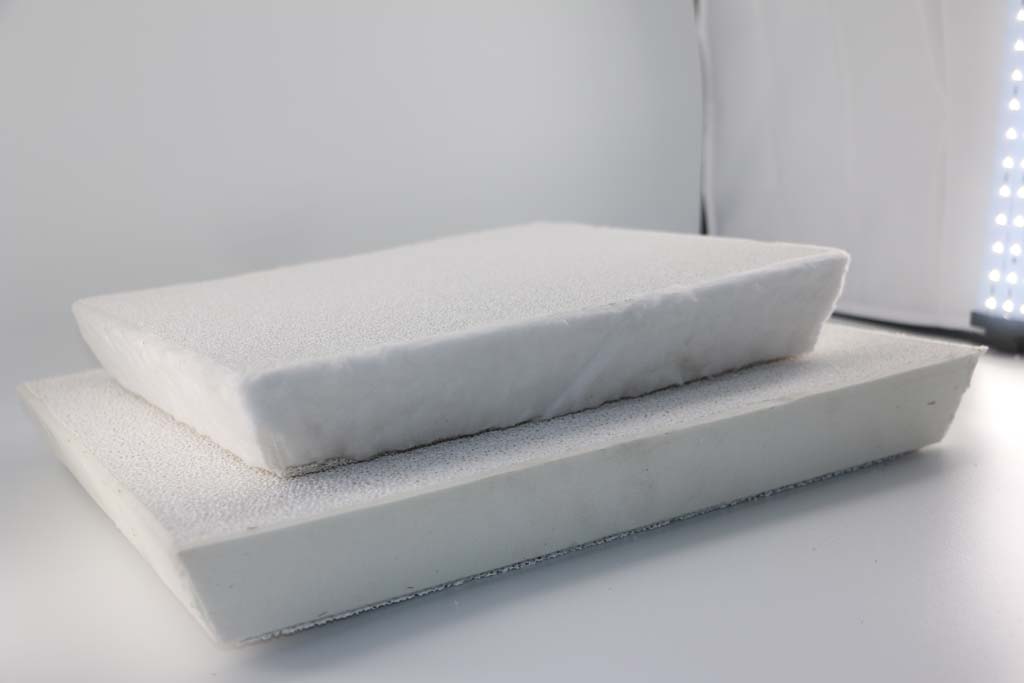Aluminium 7075 Ceramic foam filter Suppliers provides CFF, which is an open-cell mesh with a sponge-like structure and a filter device using ceramic foam as the medium.
Aluminum liquid filtration is the most effective and reliable method to remove non-metallic inclusions in aluminum melt.
There are many kinds of filtering. The simplest one is glass fiber cloth filtration. The best filtering effect of molten aluminum is the filter tube and the foam ceramic filter plate.
Aluminium 7075 Ceramic foam filter Suppliers told Aluminium Rong’s home site about these precautions during production
1. When choosing foam ceramics, first consider the requirements for filtration accuracy.
Second, consideration should be given to the requirements of the flow rate of the aluminum alloy liquid on the casting speed, the original cleanliness of the melt, the highest content of inclusions in the aluminum alloy melt, and the total throughput of the aluminum alloy melt.
2. Install the ceramic foam filter correctly. The ceramic foam filter is usually arranged horizontally in the CFF casthouse.
The advantage of the down-pouring method is that the aluminum alloy melt rises uniformly, and there is no turbulence when it hits the filter element, which ensures the uniform start of the filter element and reduces the risk of channeling.
In addition, when installing the ceramic foam filter, the components must be sealed with refractory fibers and leak aluminum.
3. Before filtering, it is best to use a radiant heater or a gas blowpipe to heat the foam ceramic filter to make it close to the melt temperature to ensure that when the front liquid flows to the foam ceramic, the metal does not solidify and does not block the pores.

The basic requirements for ceramic foam filters are:
It has sufficient strength at room temperature and high temperature to prevent damage and slag falling during transportation, installation and use.
It has high chemical stability, does not react with aluminum melt in the working temperature range, and will not cause damage to liquid aluminum and the environment.
It has sufficient through porosity and liquid aluminum permeability to ensure smooth filtration during the production process.
Therefore, the filter plate should have a small thermal expansion coefficient without cracking when heated.
It does not absorb moisture, has low density and specific heat capacity, and does not require preheating before use.








